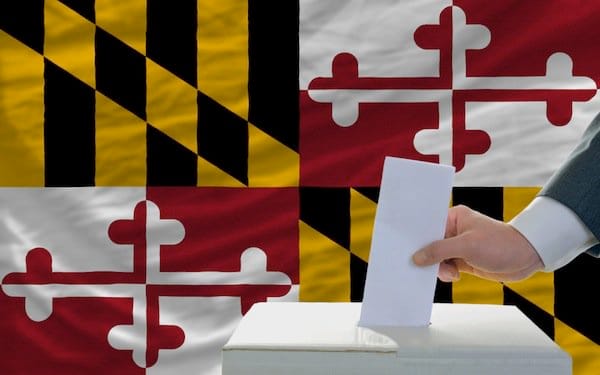Large Increase in MD Unaffiliated Voters Highlights Need for Reform


In an effort to boost participation numbers in the party's primary elections, the Republican Party of Maryland is considering opening their primaries to independent and unaffiliated voters. Currently, both the Democratic Party in Maryland and the state's GOP conduct closed primaries, restricting participation to party members.
"Some would say that allowing independents to vote would be the death knell in our party. I would say with the kind of record we have, we should study every available option," said Baltimore County Republican Central Committee Chairman John Flastro, Jr.
While it is currently a hotly debated topic among Maryland Republicans, many party members are looking for ways to expand their appeal to a broader base of voters -- especially after 2012 served as a wakeup call to party leaders nationwide.
According to the Baltimore Sun, there has been an 83 percent increase in registered unaffiliated voters since 2001. However, these voters are denied participation in primary elections, an important part of the electoral process.
In 2012, only an estimated 19 percent of eligible voters participated in Maryland's primary elections. By the end of the registration deadline for the primaries, 8 percent of eligible voters were registered 'Unaffiliated.' After adding third party registrants and "Other," the total percentage of voters kept out of statewide primaries was closer to 9 percent.
To put this in perspective, U.S. Senator Ben Cardin won his primary with an overwhelming 74.2 percent of the Democratic vote. This means he was chosen to the be the Democratic candidate by a whopping 7.5 percent of voters in the state. There is a major problem with an electoral system when only 7.5 percent of the voting age population essentially chooses the next senator of a state.
If voters who do not want to affiliate with either the Democratic Party or GOP want to participate in one of the primary elections in a given year, they must change their voter registration by the registration deadline, which for primaries is 22 days before election day. These voters, however, are silenced from expressing who they truly want representing them.
Under Maryland law, the major parties can choose to open their primaries up to independent and third party voters as long as they inform the State Board of Elections 6 months in advance. The Maryland Republican Party opened up their primary in 2000, but did not effectively advertise it and it hasn't been much of a topic for many Republicans since.
For Republican and Democratic leaders in states where voter access is restricted to two parties, a common concern is that members of the opposing party would actively work to manipulate election results in an open primary system. While there is very little evidence to support this fear, there is a solution that can eliminate the possibility of this manipulative practice while giving all voters a chance at meaningful participation in elections and level the playing field for candidates.
By the 2012 general election, unaffiliated and third party voters made up 18.3 percent of total registered voters. Maryland lawmakers should entertain the idea of changing state elections to a nonpartisan system. It would create a fair process that doesn't disenfranchise such a large percentage of the voting population.



